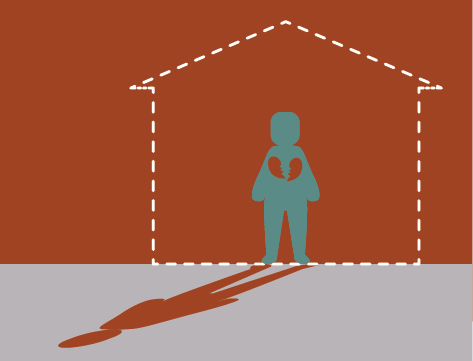Remembering times in my childhood when I would visit my late grandmother in Lincoln Heights, a suburb in East Los Angeles, homeless people were everywhere.
Whenever we ran errands or picked up food nearby, my mom held me closer, inched to the farthest side of the sidewalk and stopped our conversation when a homeless person walked by us. She looked at their layers of soiled clothing, collection of bags in their hands and tousled hair in aversion. I felt her body stiffen as she held me close. After every one of those encounters, she preached to always be wary of people like them because they were dangerous and crazy.

It was not until I entered college that I became educated past my parents’ beliefs on homelessness, racism and poverty — learning that they are all connected.
Homeless people are often stigmatized as lazy, unwilling to escape their situation, drug-addicted and hostile. These stigmas encourage people to believe that they are undeserving of help.
America capitalizes on convincing the public that “working hard” leads to guaranteed success. To keep people slaving away in a system that does not benefit them, they throw around examples like Jeff Bezos as a “regular, shmegular Joe” that started Amazon from the ground up in his garage.
What they do not like to tell people is that Bezos came from a family that had the means to invest $300,000 into his company to start it up. In my experience, some of the hardest working people I know work two to three jobs while attending school, barely making ends meet.
Many homeless people come from situations that did not set them up for success, disproportionately affecting Black and brown people the most. Addressing poverty and homelessness means accepting that racism comes in different forms — systemic, systematic, environmental and institutionalized. They are stripped of a fair start and equal opportunities— lack of adequate education due to underfunded schools, limited job opportunities, discrimination in health care, overpopulated living situations, malnourishment and so on.
People of color that become the stereotypical idea of “successful” need to overcome all of this and work 10 times harder than the average person to get there, battling the overarching stigmas held over them. Others who do not break the shackles of impoverishment and miraculously build generational wealth are left to either stay in the same situation they have been in their whole lives or become overwhelmed with mental health issues that may lead to homelessness.
Thinking back to those moments in LA with my mother, I realize that all of us are closer to falling into homelessness than we think. People tend to ignore that homeless people are human, living in a system that failed them.
According to the National Law Center on Homelessness and Poverty, 2 to 3 million Americans sleep in shelters, transitional housing and public places not meant for human habitation every year. The top reasons for this are lack of affordable housing, unemployment and mental illness — which are all things that the government should have a plan to protect their people from.
The Los Angeles Homeless Services Authority revealed that that there are 63,000 people and counting in Los Angeles experiencing homelessness today.
There is a disconnect between people and a strong sense of individualism that refuses to help the homeless because of a mentality that if we can get by, they can too. This shifts the blame and guilt of inadequate care to a large population of people. Being poor is not a choice. When the country as a collective understands that nobody wants to be put in an impoverished situation, there will be change.
For now, the American people choose to refuse laws that grant universal healthcare, supplemental housing and mental health services that provide basic human needs to those who cannot afford it.
It is not our place to judge a person for being homeless in a society that does not protect their people from inevitable circumstances. Instead of assuming that poverty is a choice, consider your own privileges before jumping to conclusions.
Nobody wants to be in a position where they need to choose between rent or food. People do not work two to three jobs for fun. Living on the streets is not comfortable for anybody. Many people are in constant survival mode and develop long-term mental health issues from it, making it hard to transition back into society.
Treat homeless people with kindness and give back when you can because you never know if that could be you one day.



